-
 Bitcoin
Bitcoin $79,012.1761
-4.78% -
 Ethereum
Ethereum $1,570.4026
-12.09% -
 Tether USDt
Tether USDt $0.9994
-0.02% -
 XRP
XRP $1.9666
-7.46% -
 BNB
BNB $555.4328
-6.02% -
 USDC
USDC $0.9999
-0.01% -
 Solana
Solana $107.5201
-9.67% -
 Dogecoin
Dogecoin $0.1506
-10.27% -
 TRON
TRON $0.2315
-2.62% -
 Cardano
Cardano $0.5814
-10.27% -
 UNUS SED LEO
UNUS SED LEO $8.8602
-2.17% -
 Chainlink
Chainlink $11.3795
-10.04% -
 Toncoin
Toncoin $3.0063
-7.92% -
 Stellar
Stellar $0.2370
-5.38% -
 Avalanche
Avalanche $16.1395
-9.48% -
 Shiba Inu
Shiba Inu $0.0...01134
-7.55% -
 Sui
Sui $1.9135
-13.06% -
 Hedera
Hedera $0.1425
-11.59% -
 Polkadot
Polkadot $3.7145
-5.76% -
 MANTRA
MANTRA $5.9824
-4.31% -
 Bitcoin Cash
Bitcoin Cash $272.1059
-9.40% -
 Litecoin
Litecoin $71.2279
-13.11% -
 Dai
Dai $1.0000
-0.02% -
 Ethena USDe
Ethena USDe $0.9987
-0.05% -
 Bitget Token
Bitget Token $4.1866
-5.67% -
 Pi
Pi $0.5915
4.23% -
 Monero
Monero $200.3568
-5.71% -
 Hyperliquid
Hyperliquid $10.5427
-10.74% -
 Uniswap
Uniswap $5.1188
-11.73% -
 OKB
OKB $50.3711
-2.37%
How does NFT Music change the revenue model of the music industry?
NFTs revolutionize music revenue, offering artists direct fan engagement, fractional ownership models, and transparent royalty payments via blockchain, though scalability and regulation remain challenges.
Mar 03, 2025 at 11:55 am
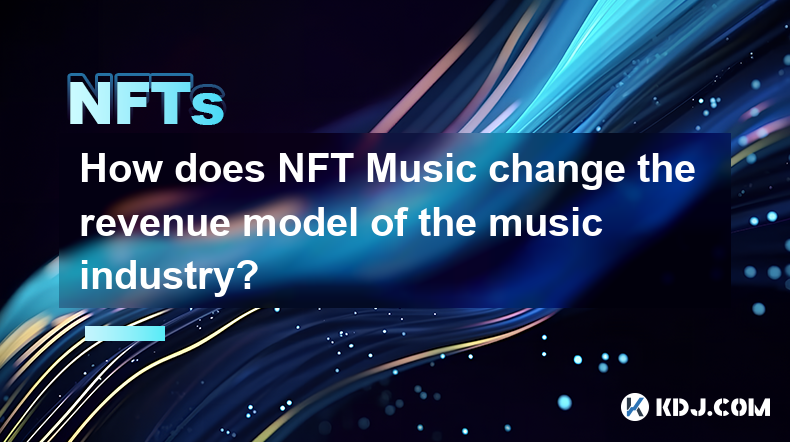
Key Points:
- NFTs offer musicians new revenue streams beyond traditional record sales and streaming royalties.
- Direct fan engagement is significantly enhanced through NFT ownership and community building.
- NFTs enable fractional ownership of musical works, creating novel investment opportunities.
- The transparency and immutability of blockchain technology benefit both artists and fans.
- Challenges remain regarding scalability, regulation, and the long-term sustainability of NFT music markets.
How Does NFT Music Change the Revenue Model of the Music Industry?
The music industry, traditionally reliant on record sales and streaming royalties, is undergoing a significant transformation with the emergence of Non-Fungible Tokens (NFTs). NFTs offer musicians a radical new approach to monetizing their work, shifting power dynamics and potentially revolutionizing the established revenue model. This change involves more direct interaction with fans and innovative ways to generate income beyond the limitations of traditional platforms.
One of the most impactful changes is the direct-to-fan sales model. Musicians can now sell NFTs representing their music, artwork, or even exclusive experiences, bypassing intermediaries like record labels and streaming services. This allows artists to retain a larger percentage of their earnings and build stronger relationships with their fan base. The sale of NFTs isn't just a one-time event; they can also unlock ongoing revenue streams through royalties on secondary sales, a feature unavailable with traditional music distribution.
Furthermore, NFTs facilitate the creation of exclusive digital assets for fans. This might include high-resolution audio files, behind-the-scenes content, or access to virtual concerts and meet-and-greets. This increased engagement fosters a sense of community among fans, strengthening their connection with the artist and providing further avenues for revenue generation. These exclusive digital assets add value beyond just the music itself, creating a more robust and appealing offer for fans.
The concept of fractional ownership, made possible by NFTs, is another significant shift. A single song or album can be divided into multiple NFT pieces, allowing fans to own a share of the musical work. This democratizes access to ownership and provides investors with a new asset class. This model shares the revenue generated from the music amongst all NFT holders, ensuring a more equitable distribution of income than traditional models.
The inherent transparency and immutability of blockchain technology underpinning NFTs are also key advantages. Royalty payments are automatically tracked and distributed, eliminating the need for intermediaries and reducing the risk of fraud or inaccurate accounting. This transparency benefits both artists and fans, fostering trust and accountability within the ecosystem. This clear audit trail ensures that artists receive their due compensation and fans can verify the authenticity of their digital assets.
However, challenges remain. The scalability of NFT platforms, the volatile nature of cryptocurrency markets, and the lack of clear regulatory frameworks present significant hurdles to widespread adoption. The environmental impact of blockchain technology is another concern that needs to be addressed. These obstacles need to be overcome for NFT music to achieve its full potential.
The complexity of smart contracts and the technical expertise required for creating and managing NFTs can also be a barrier for smaller artists. Furthermore, educating fans about the technology and its benefits is crucial for driving wider adoption and ensuring the long-term success of NFT music. Overcoming these challenges will be vital for the sustained growth of this sector.
Despite these challenges, NFT music presents a compelling alternative to the traditional music industry model. It offers artists greater control over their work, fosters stronger fan relationships, and introduces novel revenue streams. The future of music may well involve a more decentralized and fan-centric approach, driven by the innovative potential of NFT technology. The integration of metaverse and Web3 technologies further enhances the potential for NFT music to disrupt the industry.
Frequently Asked Questions:
Q: What are the main benefits of using NFTs for musicians?
A: NFTs allow musicians to bypass traditional intermediaries, earn a larger share of profits, engage directly with fans, create exclusive content, and generate ongoing revenue through royalties on secondary sales.
Q: How does NFT music impact fans?
A: Fans can gain ownership of unique digital assets, directly support their favorite artists, access exclusive content, and participate in a more interactive and community-driven music experience.
Q: What are the potential drawbacks of using NFTs in the music industry?
A: Scalability issues, regulatory uncertainty, environmental concerns related to blockchain technology, and the need for technical expertise are among the challenges.
Q: How does the transparency of blockchain technology benefit the music industry?
A: Blockchain provides a transparent and immutable record of transactions, ensuring accurate royalty payments and preventing fraud, benefiting both artists and fans.
Q: What is fractional ownership in the context of NFT music?
A: Fractional ownership allows multiple fans to own shares of a single musical work through NFTs, creating a new investment opportunity and distributing revenue more broadly.
Q: Is NFT music sustainable in the long term?
A: The long-term sustainability depends on addressing current challenges such as scalability, regulation, and environmental concerns. Widespread adoption and the development of robust infrastructure will be crucial.
Q: How does NFT music compare to traditional music revenue models?
A: NFT music offers a more direct and potentially more lucrative revenue model for artists, empowering them with greater control and enabling new forms of fan engagement, unlike the traditional reliance on streaming royalties and record sales.
Q: What role does the metaverse play in NFT music?
A: The metaverse provides new platforms for artists to showcase their NFT music, interact with fans, and create immersive experiences, further enhancing the potential of NFT music.
Disclaimer:info@kdj.com
The information provided is not trading advice. kdj.com does not assume any responsibility for any investments made based on the information provided in this article. Cryptocurrencies are highly volatile and it is highly recommended that you invest with caution after thorough research!
If you believe that the content used on this website infringes your copyright, please contact us immediately (info@kdj.com) and we will delete it promptly.
- Pepe (PEPE) Weekly Performance Hints At Huge Surge
- 2025-04-07 04:15:13
- XRP Price Tanks 12.8% This Week — More Pain to Come?
- 2025-04-07 04:15:13
- XRP's Funding Rate Has Dropped to Negative 0.012%, a Level Last Seen When the Asset Traded Near $0.33
- 2025-04-07 04:10:13
- A major supply event is coming for the SUI token
- 2025-04-07 04:10:13
- Memecoin DEX PumpSwap Makes a Significant Impact, Attracting 700K Wallets and Facilitating 30M Swaps
- 2025-04-07 04:05:12
- Ronin Network (RON) Has Retraced Heavily This Year
- 2025-04-07 04:05:12
Related knowledge
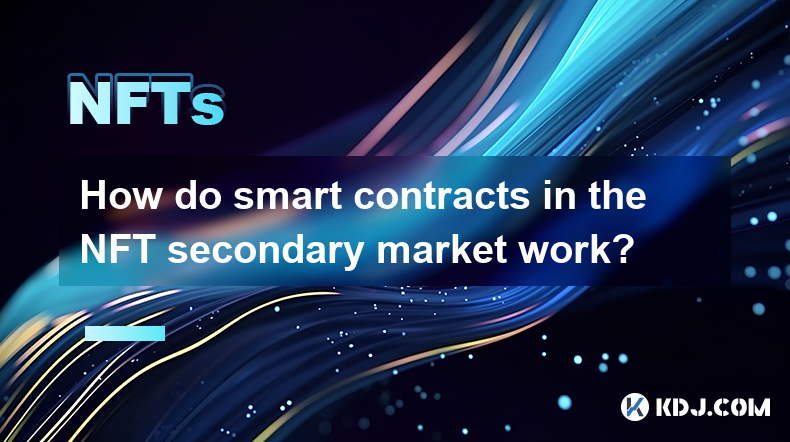
How do smart contracts in the NFT secondary market work?
Apr 03,2025 at 07:14am
Smart contracts play a pivotal role in the NFT secondary market, facilitating seamless transactions and enforcing predefined rules. These self-executing contracts with the terms of the agreement directly written into code are stored on the blockchain. In the context of NFTs, smart contracts automate the buying, selling, and transferring of digital asset...
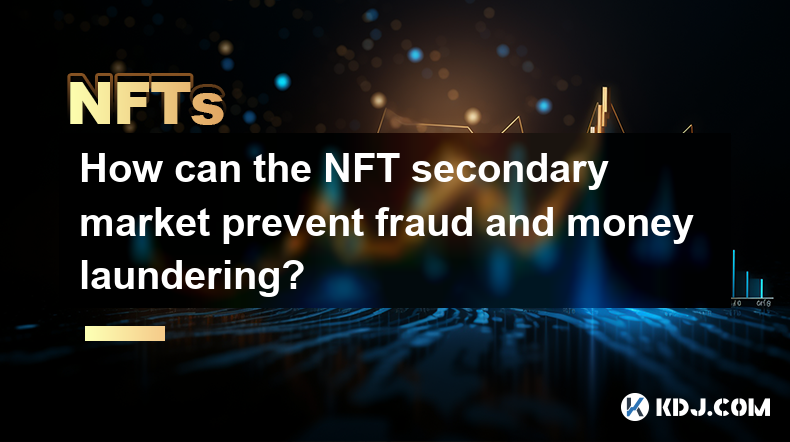
How can the NFT secondary market prevent fraud and money laundering?
Apr 03,2025 at 08:35am
The NFT secondary market has become a thriving hub for digital art and collectibles, but it also faces challenges in preventing fraud and money laundering. To tackle these issues, the market can implement various strategies and technologies to ensure a safer and more transparent trading environment. This article will explore how the NFT secondary market...
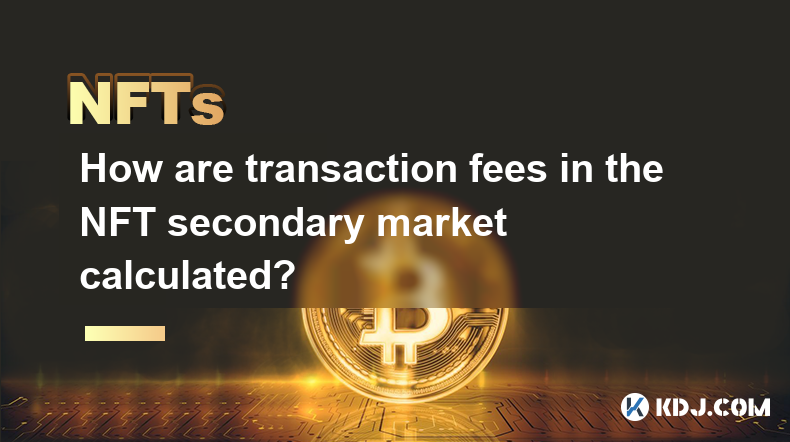
How are transaction fees in the NFT secondary market calculated?
Apr 04,2025 at 05:28am
The calculation of transaction fees in the NFT secondary market is a crucial aspect that both buyers and sellers need to understand. These fees can significantly impact the overall cost of transactions and the profits that sellers can make. In this article, we will delve into the various components that make up these fees, how they are calculated, and w...
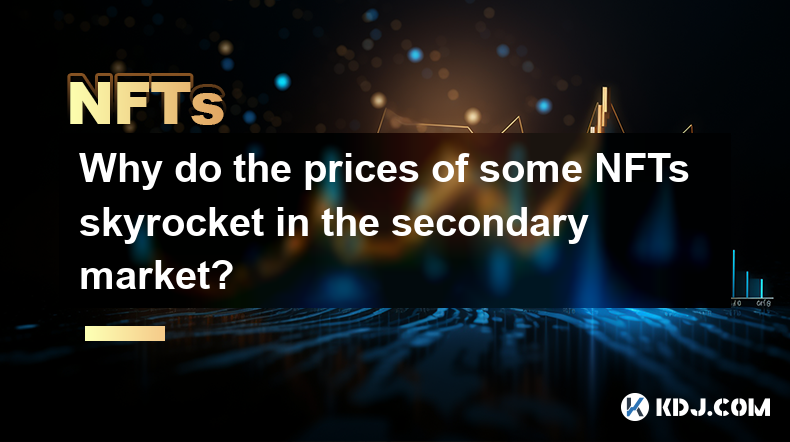
Why do the prices of some NFTs skyrocket in the secondary market?
Apr 06,2025 at 07:08am
The phenomenon of NFT prices skyrocketing in the secondary market is a fascinating aspect of the cryptocurrency and digital art world. Non-Fungible Tokens (NFTs) have taken the digital world by storm, and their value can surge dramatically after initial sales. Several factors contribute to this price surge, including rarity, demand, speculation, and the...
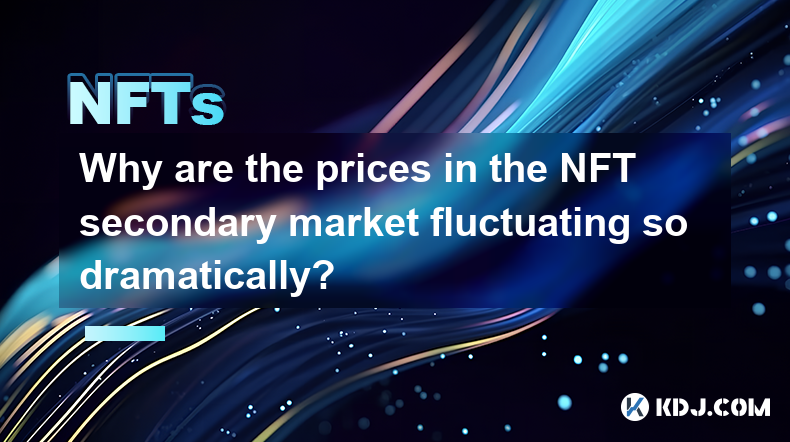
Why are the prices in the NFT secondary market fluctuating so dramatically?
Apr 03,2025 at 10:35pm
The NFT secondary market has been experiencing dramatic price fluctuations, leaving many in the cryptocurrency community puzzled and curious. To understand this phenomenon, it's essential to delve into the factors driving these price movements. From the impact of market sentiment and celebrity endorsements to the role of speculation and the unique natur...
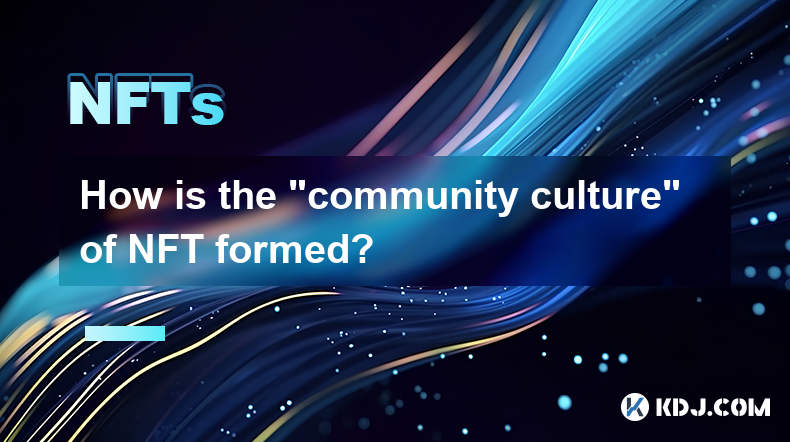
How is the “community culture” of NFT formed?
Apr 03,2025 at 11:07am
The formation of the 'community culture' within the NFT (Non-Fungible Token) space is a fascinating and multi-faceted process. It involves various elements such as shared interests, active engagement, and the creation of a sense of belonging among members. NFT communities often revolve around specific projects or artists, fostering a unique environment ...

How do smart contracts in the NFT secondary market work?
Apr 03,2025 at 07:14am
Smart contracts play a pivotal role in the NFT secondary market, facilitating seamless transactions and enforcing predefined rules. These self-executing contracts with the terms of the agreement directly written into code are stored on the blockchain. In the context of NFTs, smart contracts automate the buying, selling, and transferring of digital asset...

How can the NFT secondary market prevent fraud and money laundering?
Apr 03,2025 at 08:35am
The NFT secondary market has become a thriving hub for digital art and collectibles, but it also faces challenges in preventing fraud and money laundering. To tackle these issues, the market can implement various strategies and technologies to ensure a safer and more transparent trading environment. This article will explore how the NFT secondary market...

How are transaction fees in the NFT secondary market calculated?
Apr 04,2025 at 05:28am
The calculation of transaction fees in the NFT secondary market is a crucial aspect that both buyers and sellers need to understand. These fees can significantly impact the overall cost of transactions and the profits that sellers can make. In this article, we will delve into the various components that make up these fees, how they are calculated, and w...

Why do the prices of some NFTs skyrocket in the secondary market?
Apr 06,2025 at 07:08am
The phenomenon of NFT prices skyrocketing in the secondary market is a fascinating aspect of the cryptocurrency and digital art world. Non-Fungible Tokens (NFTs) have taken the digital world by storm, and their value can surge dramatically after initial sales. Several factors contribute to this price surge, including rarity, demand, speculation, and the...

Why are the prices in the NFT secondary market fluctuating so dramatically?
Apr 03,2025 at 10:35pm
The NFT secondary market has been experiencing dramatic price fluctuations, leaving many in the cryptocurrency community puzzled and curious. To understand this phenomenon, it's essential to delve into the factors driving these price movements. From the impact of market sentiment and celebrity endorsements to the role of speculation and the unique natur...

How is the “community culture” of NFT formed?
Apr 03,2025 at 11:07am
The formation of the 'community culture' within the NFT (Non-Fungible Token) space is a fascinating and multi-faceted process. It involves various elements such as shared interests, active engagement, and the creation of a sense of belonging among members. NFT communities often revolve around specific projects or artists, fostering a unique environment ...
See all articles





















































































